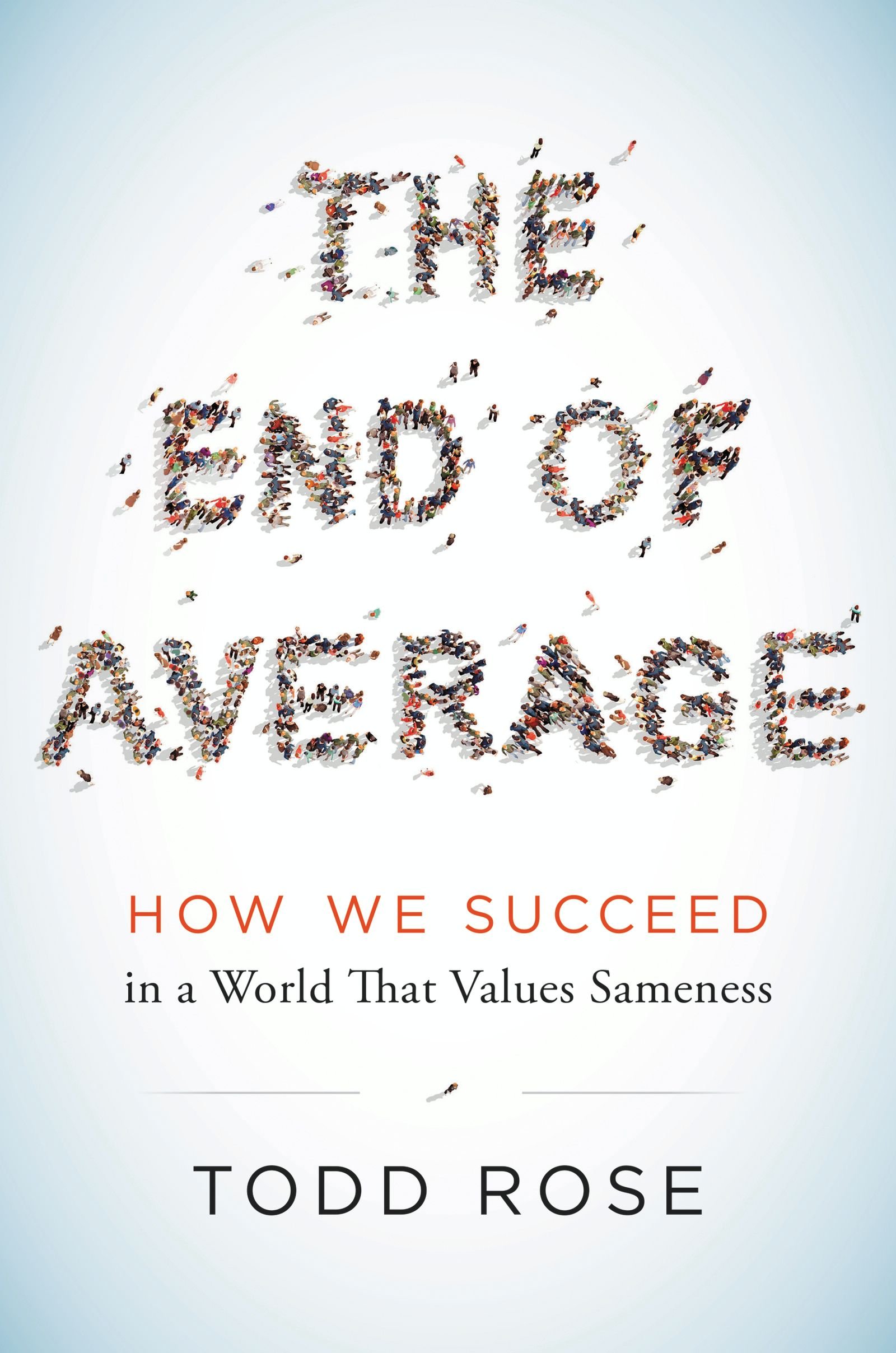- Home
- Articles
- Reviews
- About
- Archives
- Past Issues
- The eLearn Blog
Archives
| To leave a comment you must sign in. Please log in or create an ACM Account. Forgot your username or password? |
|
Create an ACM Account |

I've finished reading Todd Rose's The End of Average, and I have to say it was transformative in ways that few books are. I read a fair bit, and sometimes what I read adds some nuance to my thinking, and other times I think the books could stand to extend their own nuances. Few books fundamentally make me "think different," but The End of Average was one that did, and I believe it has important implications for learning and business.
Rose's point is pretty simple: All our efforts to try to categorize people on a dimension like GPA or SAT or IQ are, essentially, nonsensical. Through his personal story of succeeding by applying knowledge of his strengths and weaknesses, he makes a strong case that any attempt to try to define an average person and use that as a basis for education or work, is missing important nuances that will undermine the very outcome you are trying to achieve. He has three core elements that demonstrate why.
The first is what Rose calls "jaggedness." The point is whatever you're reducing to one dimension has multiple sub-components. And there's so much variation in those sub-components that any attempt to aggregate them essentially loses meaning. He uses the example of the "average pilot" that the military used to design cockpits, and how none of the thousands of pilots tested matched the average measurements. None!
Rose uses several examples showing how two (real) people testing the same on the average measure are vastly different at a finer degree of analysis. I suspect this jaggedness does go further, yet we can also make reasonable inferences, but not against an average. We need to have specific criteria, and the ability to adapt. He talks about making adjustable cockpits, which is his real point: We need to make environments that are flexible.
Rose then goes on to discuss "context"—how we perform on any measure may change in different contexts. This is an important point that has been a key to psychometric validity (that is, assessing people in reliable ways), and undermines most of the learning styles instruments, for instance. Instead, we need to recognize what we observe in one context may not reflect on how people perform in other contexts. We need to be more open and work to know more about the individual and the context, or accommodate the variability.
His final comment is what he calls "pathways." The issue here is that as a consequence of the above, even if you're going to the same place, there may be multiple paths that individuals can take. Trying to fit everyone into one pathway runs multiple risks including masking talents or discouraging learning. We can be more flexible, the examples already exist.
What really struck me is the average of many results for one person does not equal the average of one result for many people. Yet, we use the latter to make decisions. The foundations that we're using are wrong.
At school this means that our existing mechanisms for developing learners are flawed. With a specific focus on higher education, Rose talks about shifting to competencies, getting credentials (read: badges), and supporting multiple pathways. While it used to be problematic to try to raise everyone up on the basis of scale, the promise of adaptive learning systems suggest we can allow people to start choosing their own paths to learning, and their own speed.
At work this impacts hiring, choosing people for assignments, and more. Rose provides case studies about organizations that have taken a more flexible approach and the benefits that are found.
Overall, while his examples may be cherry-picked, his message is clear. Rose makes a strong case about the damage done by "averagarianism," and about the benefits of supporting more individuality. The fundamental concept of average is flawed. We can and need to reground what we do in more appropriate methods. In simple and compelling prose, he really helped me think afresh about what learning could and should be, and how we should be working to help all people achieve and contribute their best. And that, to me, is a goal worth shooting for.
Recommended.
Clark Quinn, Ph.D., helps organizations use technology aligned with how we think, work, and learn to achieve better outcomes. An internationally known consultant, Dr. Quinn has authored four books on learning technology and keynotes regularly. He previously taught at the University of New South Wales and has served in leadership positions in several new media and learning organizations. Clark works with Fortune 500 companies, education, government, and the not-for-profit sectors through Quinnovation, tweets as @quinnovator, and blogs at learnlets.com.
Permission to make digital or hard copies of part or all of this work for personal or classroom use is granted without fee provided that copies are not made or distributed for profit or commercial advantage and that copies bear this notice and the full citation on the first page. Copyrights for third-party components of this work must be honored. For all other uses, contact the Owner/Author.
2015 Copyright held by the Owner/Author. 1535-394X/16/04-2930809 $15.00
|
To leave a comment you must sign in. |
|
Create an ACM Account. |